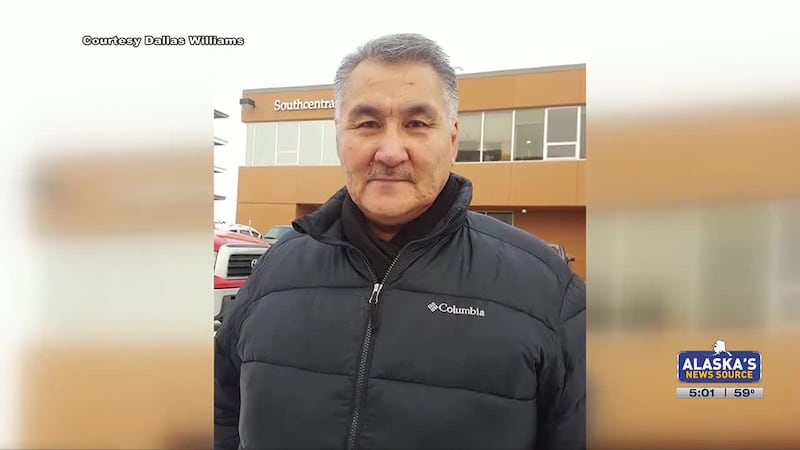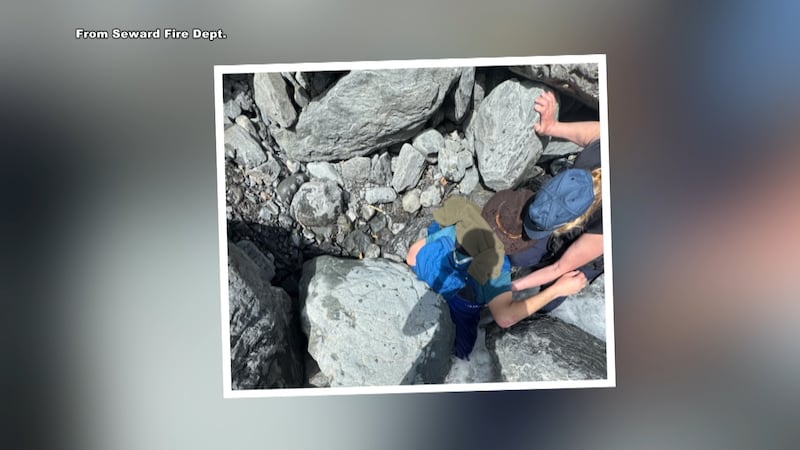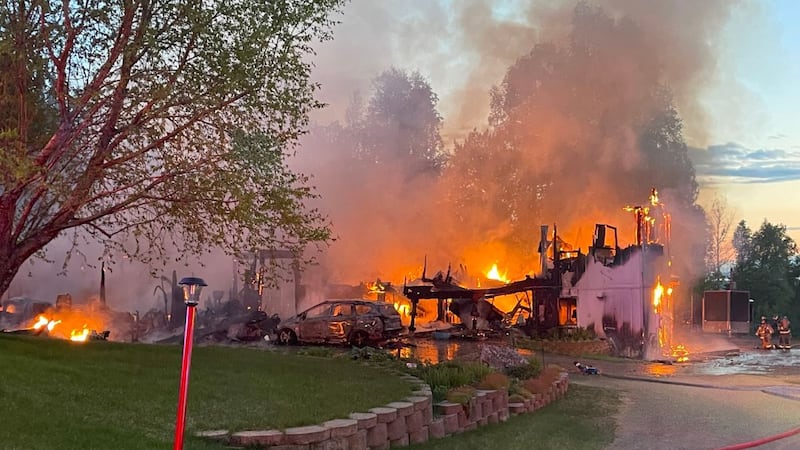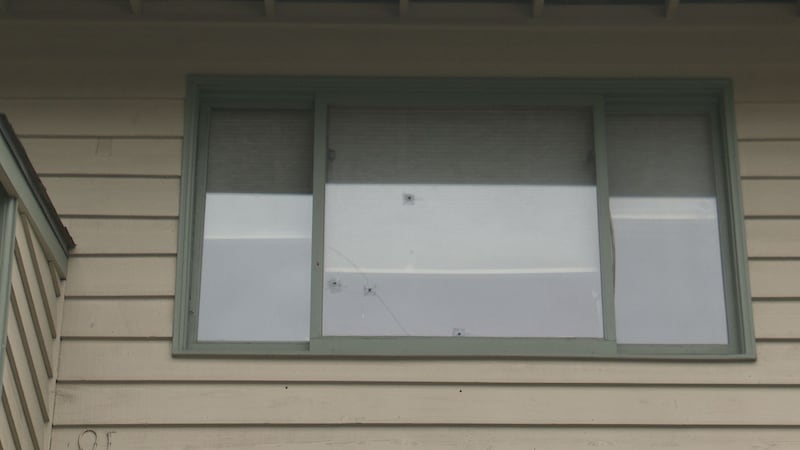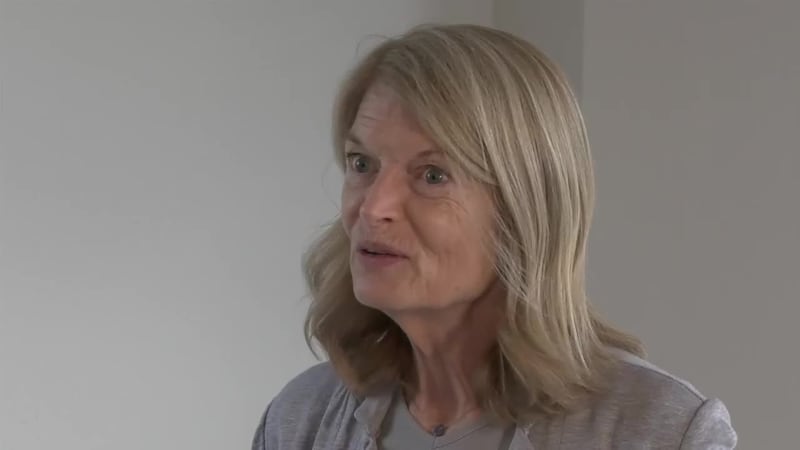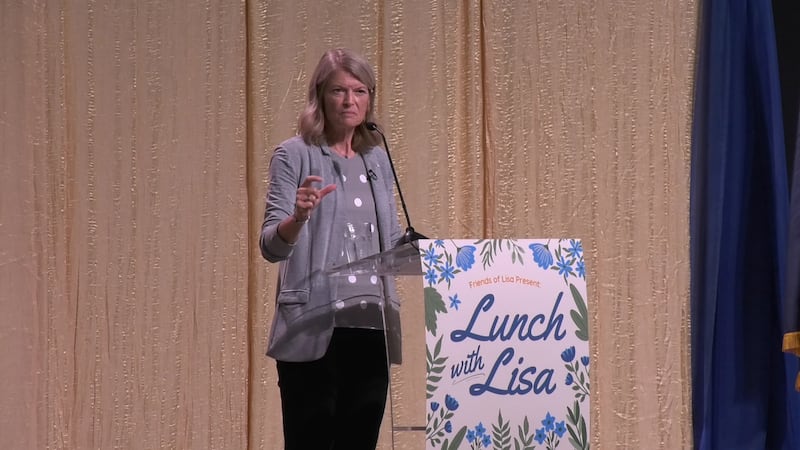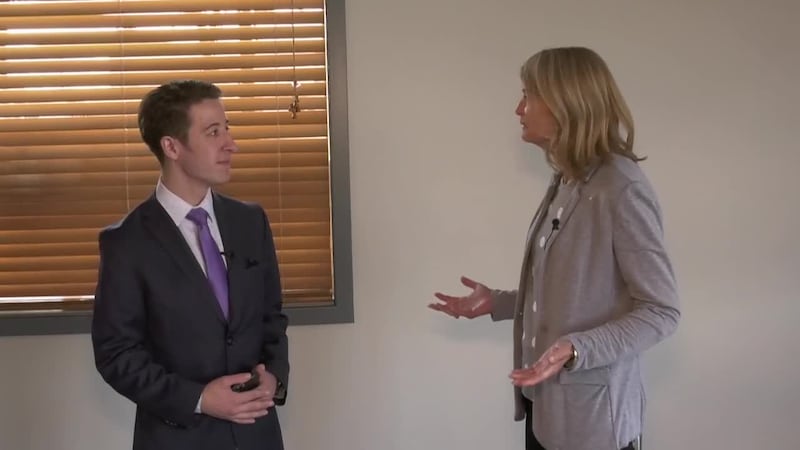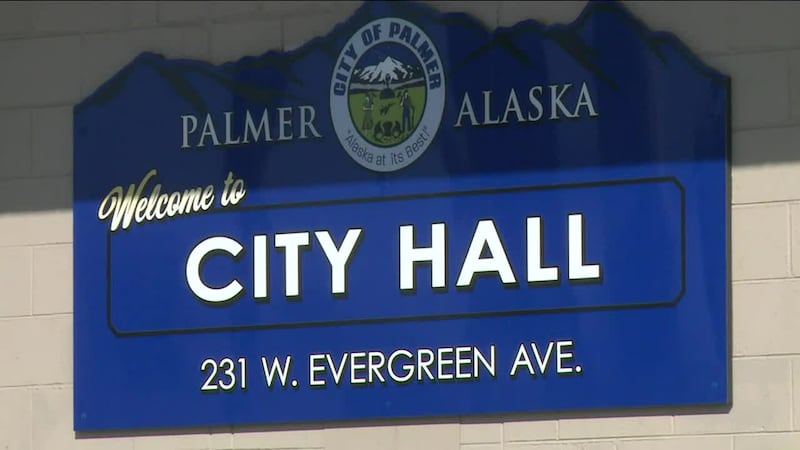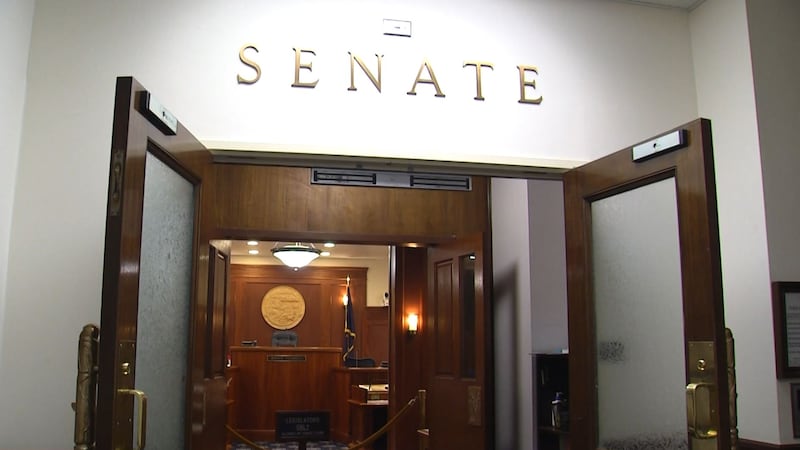Governor vetoes education funding bill, sending HB 69 back to state lawmakers
A different education funding bill, including a slightly lower BSA increase, is to be introduced
ANCHORAGE, Alaska (KTUU) - State lawmakers have a renewed endeavor ahead of them after Gov. Mike Dunleavy, R-Alaska, formally vetoed House Bill 69, which arrived to his desk in a “stripped-down” form but still provided a $1,000 per-student funding increase via the Base Student Allocation for school districts across Alaska.
During a press conference Thursday morning, Dunleavy emphasized that the legislation — in its current form — is not something he will support. He will instead bring forth a different bill, he said, to help fund education.
“The revenue situation has deteriorated a lot,” Dunleavy said, pointing to changes since the original introduction of his proposed budget as well as that of HB 69. “The second reason for the veto is, there’s no policy in the bill.
“We still have plenty of time to get a bill passed,” he said in part, adding that he’s optimistic the work can get done.
The governor also said he would be introducing an alternative bill that includes what’s equivalent to a $700 increase to the BSA, which he said he could sign as early as Friday morning or, “would’ve signed a month ago,” had it been proposed.
A prepared statement from his office after the morning press conference clarified that the new legislation includes a $560 BSA increase, with “additional targeted funding and policy reforms [...] comparable to a $700 BSA increase.”
“It will have policies that will help kids,” Dunleavy said, “and it will have the funding that is being requested as well.”
HB 69, which made it to Dunleavy’s desk last week, would’ve raised the BSA – an annual, per-student allocation for kids Alaska – to $6,960, increasing the yearly funding by more than $250 million. Other policies previously included in the bill were removed by the Senate Finance Committee before the bill went to floor votes.
Following the announcement of the governor’s veto, a prepared statement from the House Majority Coalition said in part that the governor “offering an alternative with less funding and unvetted policy throws school budgets into disarray and leaves families in limbo.”
“[Dunleavy] acknowledges that rural energy costs are holding schools back,” said Rep. Rebecca Himschoot, NA-Sitka, who sponsored the original bill. “He says inflation is an issue we need to address. Those are all important points that need to be addressed right now.”
Rep. Chuck Kopp, R-Anchorage, said during an interview Thursday that there’s “no way” a bill lacking policy provisions will be sent back to the governor.
“That’s just pointless wrangling over something that needs to be done,” he said. “I do see the House and the Senate working together on the policy and a BSA that we can concur on.
“I’m more interested in getting an amount quickly back to the governor,” Ko added, “where we have concurrence and his support, so we don’t have to go into a special session that delays funding of our schools another 60 or 90 days.”
House Republicans also shared a prepared statement Thursday, saying in part that the governor’s new education funding bill could help lead to helpful policy reforms. That includes changes to open enrollment, charter school operations, school reporting standards, cell phone use policies, and more.
“We support our schools, and we want to see a permanent increase to the BSA, as well as better outcomes for students, families, and teachers,” said Rep. Mia Costello, R-Anchorage, who is also leading the Republican caucus.
“This new proposal gives us a strong foundation to build on.”
During an interview with Alaska’s News Source on Thursday, Senate Minority leader Mike Shower, R-Wasilla, said he believes there is a genuine desire overall to solve the issue of education funding, though he isn’t convinced everything can get done within the constraints of the timeline of the regular session.
“All of the policy pieces have been vetted; the amounts we’ve discussed, from $1,800 to $1,000 to $680 to something less, have all been discussed and vetted in committee and debated on the floor,” he said. “The point now is, how much of that policy is going to be put into a bill, along with what amount of funding? And then, let everybody vote on it.”
He also expressed frustration over either body moving forward with HB 69, when — particularly given Dunleavy indicating he would “immediately veto” the bill if it landed on his desk — it appeared clear the bill wouldn’t be signed into law in its current form.
It was a waste of time, Shower said, leaving the Legislature, and others, “at square one again.”
“No solution, nothing for the parents and the teachers and the school system to rely upon,” he said in part, “and we’re starting over with four weeks left in the four-month session.
“If you know it doesn’t work, if you know it’s going to fail, why did we do it anyways?” Shower said later. “They did it for politics; there is no other answer. You don’t do this unless it’s for politics.
“I’m saying the quiet part out loud,” he continued, “because that’s what it is: There is no other logical answer to what happened this past week than to use it as a political weapon, period.”
Upon HB 69 advancing from the Senate Finance Committee last week, Dunleavy took to social media, calling the legislation “a joke” and saying it “does absolutely nothing” to improve educational achievement or support charter schools or home schools in Alaska.
In a subsequent social media post, he stated that the bill “hands out a blank check to school districts, taking your PFD to increase school funding by $250 million without a single reform or any accountability.”
“While there is consensus that our school districts need additional funding,” the April 11 post states, “it was pointed out by a number of legislators that the price tag is way too high with falling oil prices and no meaningful policy included.”
Other state lawmakers rebuked Dunleavy’s categorization of the bill in various meetings this week, including during a Senate Majority press conference on Tuesday afternoon.
“He did call it a joke — a thousand dollars — and I mean, those of us who have talked to school boards, and students, and parents, know that it’s not a joke at all, that the serious money is needed,” said Sen. Gary Stevens, R-Kodiak, who serves as senate president. “We’ll see what happens. If a thousand doesn’t work, we’ll talk about other funding amounts.”
The Senate Minority Caucus — a formal minority, with six members this year, led by Shower — has repeatedly said that the $1,000 BSA increase is neither affordable nor sustainable.
“The BSA number in this bill is not the real number for our school districts,” said Sen. Mike Cronk, R-Tok, who also referred to the passage of the bill as a “political cover vote” in a prepared statement from the Minority late last week.
Fellow minority member Sen. Robert Yundt, R-Wasilla, said Alaska has always met the minimum statutory BSA, but that could change with the added funding laid out in HB 69.
“If we increase it by that much,” Yundt said during a press conference last week, “we’re setting up House and Senate Finance next year for a real problem, because I don’t know that they would actually be able to do it while revenues are declining. And we’re not in a good position right now.”
Sen. Bill Wielechoswki, D-Anchorage, said lawmakers spoke early in the session about wanting to keep policy separate from the actual BSA.
“Funding separate from policy,” Wielechowski, a Senate Majority member, said during a presser this week. “That’s what we talked about from the very beginning, and that’s ultimately what we did in the Senate.”
What he’s been hearing from school districts — including boards, teachers, parents and students, he said — has been largely focused on concerns over class sizes “exploding.”
“They want teachers to be adequately paid; they want to stop laying off teachers,” he said, “and the way that you do those things is to increase the Base Student Allocation. It’s a complex formula that we have debated for many years, and we haven’t increased that in a decade, or eight years, and so, that was the number one priority. It’s a policy provision. We passed it.”
Ahead of the governor’s formal veto, Wielechowski said he expected a veto override session.
In this case, a veto override would require a two-thirds vote of the entire Legislature, meaning 40 of the 60 members across both bodies would have to support the override on the record in order for it to go through.
Lawmakers are meant to “immediately” convene in a joint session to vote on the governor’s veto. However, as of publishing time, it was not yet clear when that vote might actually happen.
“And we’ll see where legislators fall in it,” Wielechowski said, adding that “a lot of time” was spent on similar legislation last year. “We thought we had a deal with everyone, and that was vetoed, so, you know, it’s an unfortunate situation we found ourselves in.
“Last year, when that was vetoed, I think it took all the steam out of the room, all the wind out of the room, out of the sails of doing anything,” he continued. “We couldn’t come together and get anything else done. And I am concerned that, if we don’t override the veto, that’s very possible again this year.”
HB 69 first advanced from the House to the Senate in a 24-16 vote. Following the Senate Finance Committee’s changes to the bill, Senate lawmakers passed the legislation 11-9, and a 21-16 concurrence vote in the House led to the bill being pushed through to the governor last week.
See a spelling or grammatical error? Report it to web@ktuu.com
Copyright 2025 KTUU. All rights reserved.

